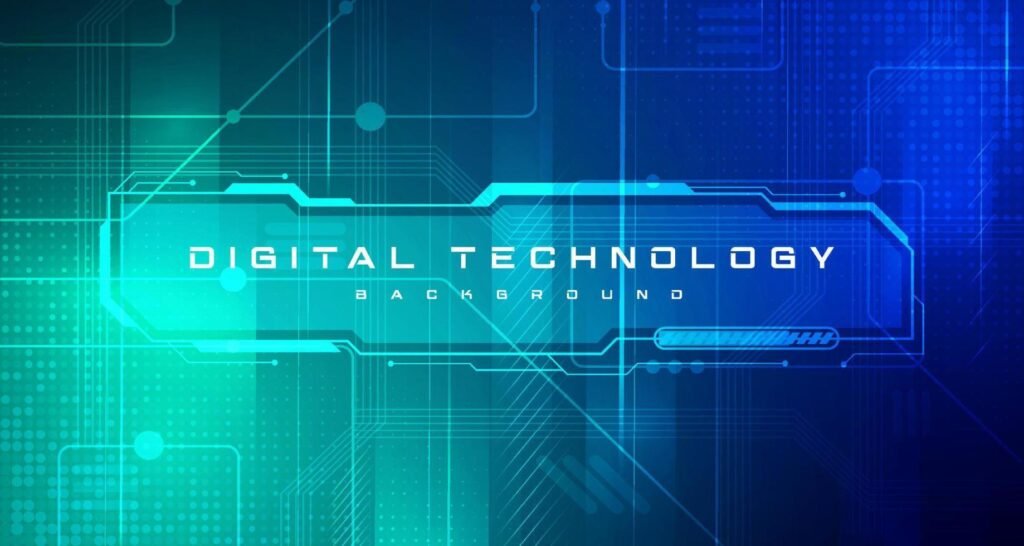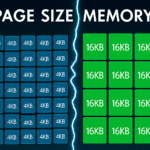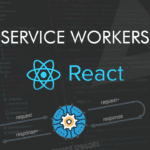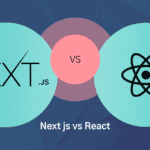Artificial Intelligence is leading the way in technological change in 2025, reshaping every part of the tech industry. From cloud computing to product development, AI technologies are bringing about unprecedented changes in how we create, deploy, and interact with digital solutions.
The numbers tell a compelling story: AI is projected to inject $15.7 trillion into the global economy by 2030. This massive economic impact reflects the technology’s growing influence across sectors:
- Better Decision Making: AI systems now process complex data sets in real-time
- Automated Development: Smart algorithms streamline software creation
- Predictive Analytics: AI-powered insights drive business strategies
- Intelligent Cloud Solutions: Advanced computing capabilities transform data processing
2025 is a crucial year as AI moves from being an emerging technology to becoming an essential business tool. Companies using AI are seeing significant improvements in efficiency, innovation, and market competitiveness. This technological revolution isn’t just changing how businesses work – it’s fundamentally changing what’s possible in the tech industry.
Understanding AI Technologies
AI technologies exist in three distinct forms, each representing different levels of cognitive capability and autonomy. Let’s explore these variations and their learning methodologies that shape the tech industry’s landscape in 2025.
Types of AI Systems
1. Narrow AI (ANI)
- Designed for specific tasks like image recognition or language translation
- Currently the most prevalent form in everyday applications
- Examples: Virtual assistants, recommendation engines, spam filters
2. General AI (AGI)
- Matches human cognitive abilities across multiple domains
- Can understand, learn, and apply knowledge like humans
- Still in theoretical development with significant research ongoing
3. Super AI (ASI)
- Surpasses human intelligence in all aspects
- Capable of recursive self-improvement
- Remains a concept in scientific research and speculation
AI Learning Methodologies
1. Supervised Learning
- Uses labeled datasets to train AI models
- Popular in predictive analytics and classification tasks
- Drives developments in facial recognition and medical diagnosis
2. Unsupervised Learning
- Identifies patterns in unlabeled data
- Essential for market segmentation and anomaly detection
- Powers customer behavior analysis and trend identification
3. Reinforcement Learning
- AI learns through trial and error
- Optimizes decision-making processes
- Applied in robotics and autonomous systems
These learning approaches combine with advanced algorithms to create sophisticated AI systems. Companies leverage these technologies to automate complex tasks, enhance decision-making processes, and create innovative solutions across various industries. The integration of these AI types and learning methods continues to push the boundaries of what’s possible in technology development.
Current Trends in AI for 2025
The AI landscape in 2025 showcases groundbreaking advancements in generative models, revolutionizing content creation across industries. These AI systems now produce high-quality images, videos, and code with unprecedented accuracy and creativity.
Key Generative AI Applications:
- Text-to-video generation for instant marketing content
- Code synthesis for rapid application development
- 3D model creation from text descriptions
- Music composition and audio generation
- Automated report writing and documentation
Advanced chatbots have evolved beyond simple query responses, becoming sophisticated digital assistants capable of complex decision-making. These AI-powered conversational agents understand context, emotions, and cultural nuances, delivering personalized experiences in real-time.
Enhanced Chatbot Capabilities:
- Multi-language processing with cultural awareness
- Emotional intelligence and sentiment analysis
- Context retention across multiple conversations
- Predictive response generation
- Integration with enterprise systems
AI automation has transformed traditional workflows, reducing manual intervention and increasing operational efficiency. Business processes now leverage AI for intelligent decision-making and resource optimization.
AI Automation Innovations:
- Smart resource allocation systems
- Automated quality assurance testing
- Intelligent project management tools
- Predictive maintenance scheduling
- Real-time performance optimization
The integration of these technologies has created a synergistic effect, with AI systems working together to deliver comprehensive solutions. Companies implementing these trends report significant improvements in productivity, with some achieving up to 40% reduction in operational costs and 60% faster time-to-market for new products.
The Role of AI in Software Development
AI-powered development tools have transformed how software engineers work in 2025. These innovations make coding easier, improve debugging skills, and speed up project delivery.
Leading AI Development Tools:
- GitHub Copilot X – Provides intelligent code suggestions and automates repetitive coding tasks
- Amazon CodeWhisperer – Offers real-time code reviews and security vulnerability detection
- Microsoft Power Platform – Enables rapid application development through low-code solutions
- Google’s Vertex AI – Simplifies ML model deployment and management
Real-world examples show how AI is changing software development for the better. Netflix uses AI algorithms to optimize their codebase, resulting in a 35% reduction in debugging time. Spotify’s AI-driven development platform automates up to 60% of routine coding tasks, allowing developers to focus on complex problem-solving.
Key Benefits for Development Teams:
- 40% faster code generation
- 65% reduction in testing cycles
- 80% improvement in bug detection
- Automated code documentation
- Enhanced security vulnerability scanning
However, there are challenges to integrating AI into software development. Companies like Adobe report initial resistance from development teams who are adjusting to AI-assisted workflows. Data privacy concerns arise when AI tools analyze proprietary code. Microsoft’s development teams highlight the need for continuous AI model training to maintain accuracy in code suggestions.
Small companies are using low-code AI platforms to compete with larger organizations. Startups like Vercel show how AI-powered development tools give access to advanced software engineering skills, enabling quick prototyping and deployment of web applications.
AI security frameworks have become essential parts of modern development environments. Tools like Snyk and Checkmarx use AI to find potential security threats during the development process, ensuring strong application security from the beginning.
Impact on Tech Jobs and Workforce Dynamics
The widespread adoption of AI technologies in 2025 creates a complex landscape for tech professionals. Research by McKinsey indicates that 35% of current tech roles face potential automation, sparking discussions about job security and career evolution.
Key Areas of Job Displacement:
- Traditional coding positions
- Basic QA testing roles
- Entry-level data analysis positions
- Routine system maintenance tasks
The tech workforce is experiencing a significant shift toward new specializations. You’ll find emerging roles such as:
- AI Ethics Officers
- Machine Learning Operations Engineers
- AI-Human Interaction Designers
- Algorithm Auditors
Ethical Considerations in AI Deployment
Data privacy stands at the forefront of ethical AI implementation. Companies must address:
- Personal information protection
- Transparent data collection practices
- User consent mechanisms
- Data storage security
Algorithmic bias remains a critical challenge in AI systems. Recent studies reveal bias instances in:
“73% of AI recruitment tools showed gender bias, while 82% demonstrated racial bias in candidate selection processes” – Tech Ethics Research Institute, 2024
Tech organizations are implementing strict guidelines:
- Mandatory bias testing before deployment
- Regular algorithmic audits
- Diverse development teams
- Clear accountability frameworks
The tech industry’s response includes establishing dedicated ethics boards and implementing AI Fairness Tools. These measures help ensure equitable AI system deployment while protecting user privacy and preventing discriminatory outcomes.
Future Implications for the Tech Industry
The tech landscape of 2025 presents transformative opportunities across multiple sectors. AI technologies are set to revolutionize key industries through specialized applications and innovative solutions.
Healthcare Sector Transformation
- AI-powered diagnostic tools achieving 99% accuracy in early disease detection
- Personalized treatment plans based on genetic data analysis
- Remote patient monitoring systems with real-time health predictions
- Virtual health assistants managing patient care coordination
Financial Services Evolution
- Automated risk assessment systems detecting fraud patterns in milliseconds
- AI-driven investment platforms offering hyper-personalized portfolio management
- Blockchain integration with AI for secure, instant cross-border transactions
- Predictive analytics forecasting market trends with unprecedented accuracy
Manufacturing & Supply Chain
- Smart factories operating with 95% automation rates
- AI-optimized inventory management reducing waste by 40%
- Predictive maintenance systems preventing 85% of equipment failures
- Real-time supply chain adjustments based on global demand patterns
Retail & E-commerce
- Hyper-personalized shopping experiences driven by deep learning algorithms
- Virtual shopping assistants with human-like interaction capabilities
- Dynamic pricing systems optimizing revenue in real-time
- Automated logistics networks reducing delivery times by 60%
These advancements signal a shift toward highly efficient, data-driven operations across industries. The integration of AI technologies creates new business models and revenue streams, fundamentally altering traditional industry structures.
Conclusion
The AI revolution in 2025 brings both remarkable opportunities and critical responsibilities to the tech industry. Ethical AI development stands as a cornerstone for sustainable technological advancement. Companies must prioritize:
- Transparent AI systems that protect user privacy
- Bias-free algorithms that serve diverse populations
- Responsible automation practices that consider workforce impact
The future of AI technology rests on our commitment to these principles. As we harness AI’s transformative power, the tech industry’s success will be measured not just by technological achievements, but by our ability to create solutions that benefit humanity while upholding ethical standards. The path forward demands a balanced approach – embracing innovation while safeguarding human values in this AI-driven era.
FAQs (Frequently Asked Questions)
What is the significance of AI in the tech industry by 2025?
AI is revolutionizing the tech industry by transforming how technology operates, enhancing efficiency, and driving innovation. By 2025, advancements in AI will play a crucial role in shaping the future landscape of technology.
What are the different types of AI technologies?
AI technologies can be categorized into three main types: Narrow AI (ANI), which is specialized for specific tasks; General AI (AGI), which possesses human-like cognitive abilities; and Super AI (ASI), which surpasses human intelligence. Each type has distinct characteristics and implications for the tech industry.
How are generative models influencing content creation in 2025?
Generative models are significantly impacting content creation by enabling automated generation of text, images, and other media. This technology enhances creativity and productivity for developers and content creators, making it a vital trend in 2025.
What role does AI play in software development?
AI is transforming software development through tools that assist developers, such as low-code platforms and automation frameworks. These tools streamline coding processes, improve efficiency, and facilitate innovative solutions within software engineering practices.
What are the potential impacts of AI on tech jobs?
The widespread adoption of AI technologies raises concerns about job displacement within the tech sector. However, it also creates new opportunities and roles that require skills in managing and developing AI systems, underscoring the importance of adapting to these changes.
How should ethical guidelines be established for AI deployment in technology?
Establishing ethical guidelines for AI involves addressing issues like data privacy, algorithmic bias, and ensuring responsible usage. It is essential to create frameworks that promote fairness and accountability as we navigate the transformative impact of AI on the tech industry.
















